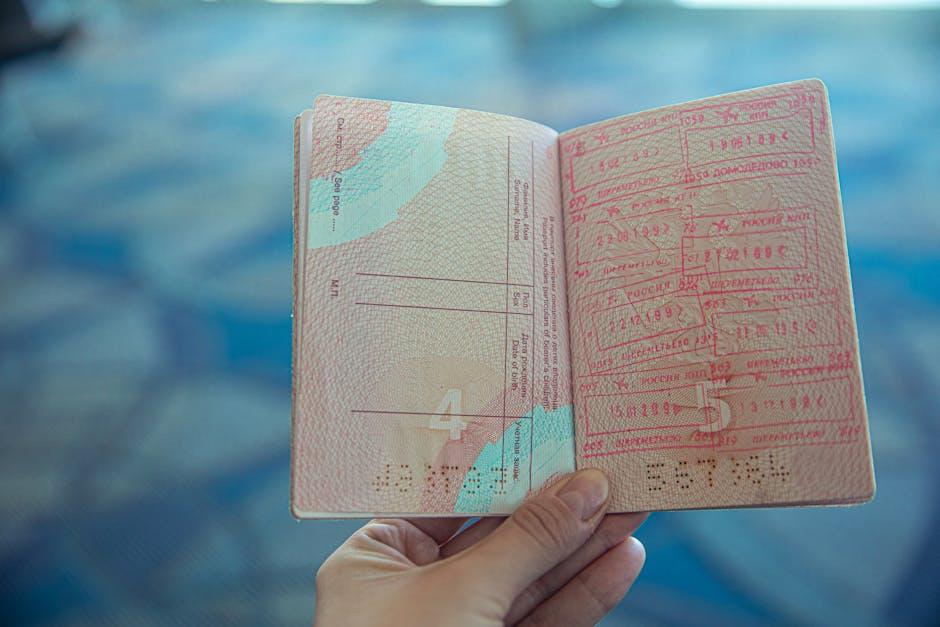When planning a trip, whether for leisure or business, ensuring peace of mind should be at the top of your list. Travel insurance offers a safety net against the unexpected, from medical emergencies to trip cancellations. However, not all travel insurance policies are created equal, and choosing the right one requires careful consideration. In this guide, we delve into the essential questions you need to ask before purchasing travel insurance. By understanding what to look for, you can make an informed decision that protects your investment and provides you with the security you need to fully enjoy your journey. Let’s explore the key inquiries that will help you navigate the complexities of travel insurance with confidence and clarity.
Understand the Coverage You Need
When selecting travel insurance, it’s crucial to determine the specific coverage you need to ensure peace of mind during your journey. Consider the nature of your trip and identify potential risks that might arise. Here are some key areas to focus on:
- Medical Emergencies: Verify if the policy covers medical expenses, including hospitalization, doctor visits, and emergency evacuation. Check if it covers pre-existing conditions if applicable.
- Trip Cancellations: Ensure the policy reimburses non-refundable costs if you need to cancel due to unforeseen circumstances such as illness, natural disasters, or other emergencies.
- Baggage and Personal Belongings: Confirm coverage for lost, stolen, or damaged luggage and personal items. Know the limits and exclusions, especially for high-value items.
- Travel Delays: Look for compensation options for delays that may require unexpected accommodation or meal expenses.
Always read the fine print and compare policies to tailor coverage that aligns with your travel plans. An informed decision will safeguard your adventures, letting you focus on creating unforgettable memories.

Evaluate the Policy Exclusions
When scrutinizing a travel insurance policy, it’s crucial to identify and understand the exclusions that could affect your coverage. Exclusions are specific conditions or circumstances under which the insurance provider will not pay a claim. By familiarizing yourself with these limitations, you can avoid unpleasant surprises during your travels. Here’s what you should look for:
- Pre-existing Medical Conditions: Most policies exclude coverage for pre-existing medical issues unless explicitly stated otherwise. Check if your condition is covered and if additional documentation is required.
- Adventure and Extreme Sports: Activities such as bungee jumping, scuba diving, or skiing may not be covered. Ensure your adventurous pursuits are included if they’re a part of your itinerary.
- Travel to High-risk Areas: Destinations under government travel advisories often fall under exclusions. Verify if your travel route is within the safe zones as defined by the insurer.
- Alcohol and Drug-related Incidents: Claims resulting from incidents while under the influence are typically excluded. Understanding these boundaries can prevent denied claims.
- Non-medical Evacuations: While medical evacuations might be covered, non-medical ones, such as political evacuations, often are not. Consider your destination’s political climate when evaluating this exclusion.
Thoroughly reviewing these exclusions will empower you to select a policy that aligns with your travel plans and provides peace of mind. By asking the right questions, you ensure that your travel insurance truly supports you when needed most.

Assess the Claim Process and Customer Support
When considering travel insurance, it’s crucial to evaluate the efficiency of the claim process and the quality of customer support. Start by asking how claims are submitted—whether online, through an app, or via mail. Ease of submission can greatly affect your experience, especially when you’re in a foreign country and need quick assistance.
Additionally, inquire about the average processing time for claims and whether there are any fast-track options available for urgent situations. It’s also beneficial to know if the company offers 24/7 customer support and what channels are available for communication. Consider the following aspects:
- Availability of a dedicated claims specialist
- Access to multilingual support staff
- Options for live chat, email, or phone support
- Customer support ratings and reviews
A responsive and accessible support system can make a significant difference in stressful situations, ensuring peace of mind during your travels.

Compare Costs and Value Across Providers
When evaluating travel insurance options, it’s crucial to weigh both the costs and the value each provider offers. While it might be tempting to opt for the cheapest plan, doing so could mean sacrificing essential coverage. To make an informed decision, consider the following factors:
- Coverage Limits: Ensure that the plan offers sufficient coverage for medical expenses, trip cancellations, and lost luggage. A low-cost plan with minimal coverage may not provide the protection you need in an emergency.
- Exclusions: Carefully review what is not covered by the policy. Some low-cost providers may have extensive exclusions that could leave you vulnerable.
- Customer Service: Investigate the quality of customer service each provider offers. A provider with excellent support can be invaluable when you need assistance during your travels.
- Reputation and Reviews: Look for providers with positive customer feedback and a strong reputation in the industry. This can give you confidence that the provider will be reliable when it matters most.
By considering these elements, you can find a travel insurance plan that not only fits your budget but also provides comprehensive coverage and peace of mind for your journey.

